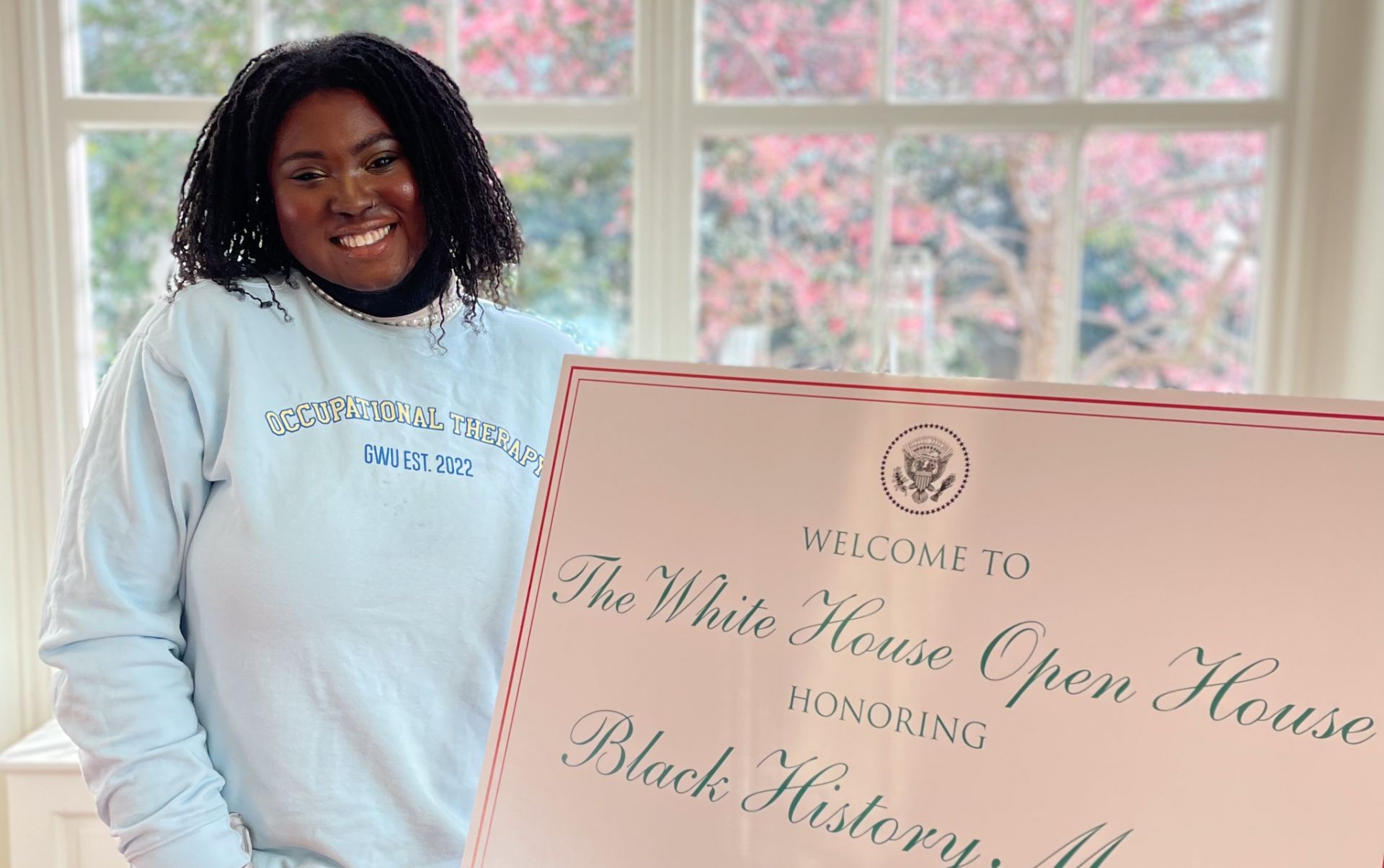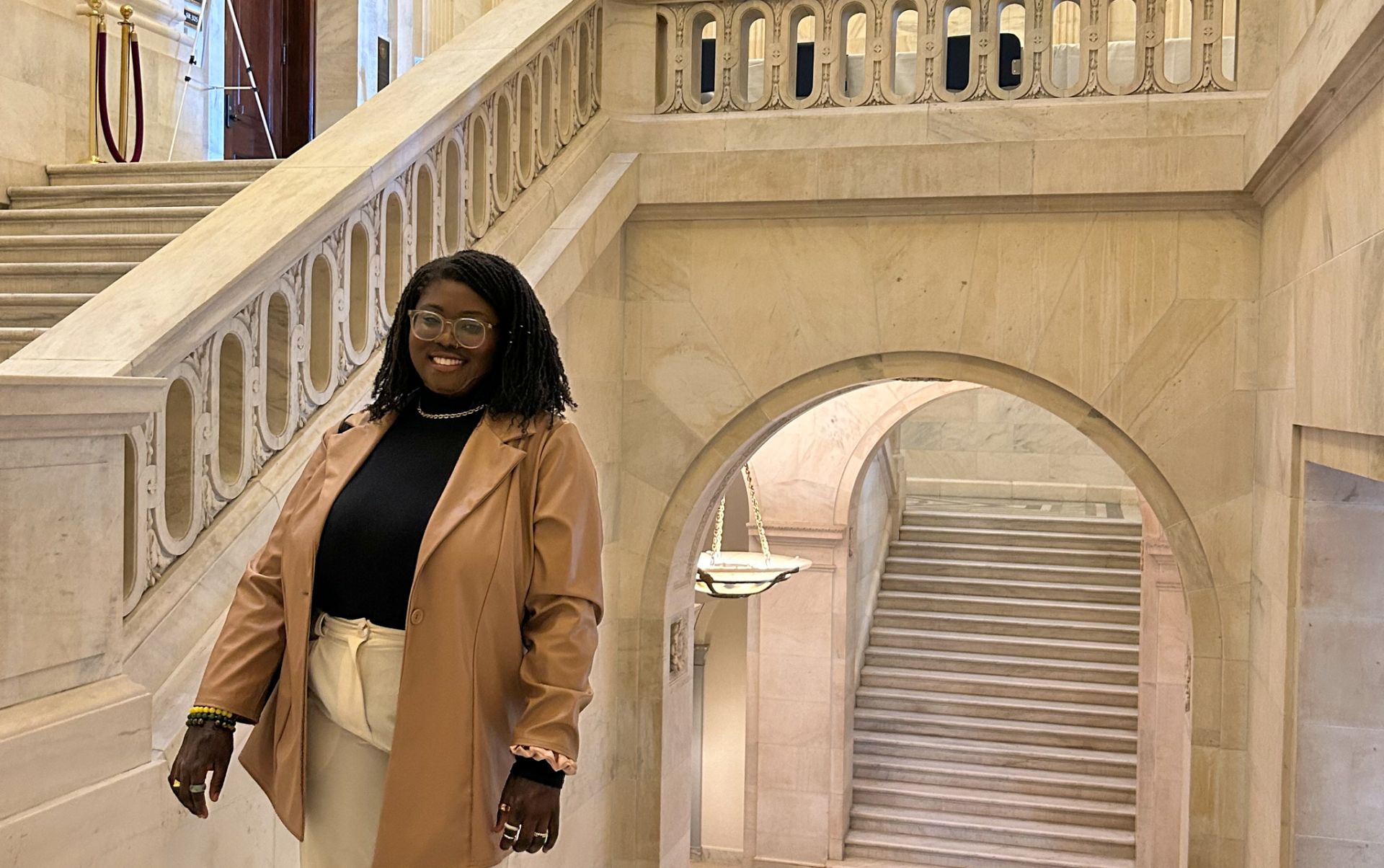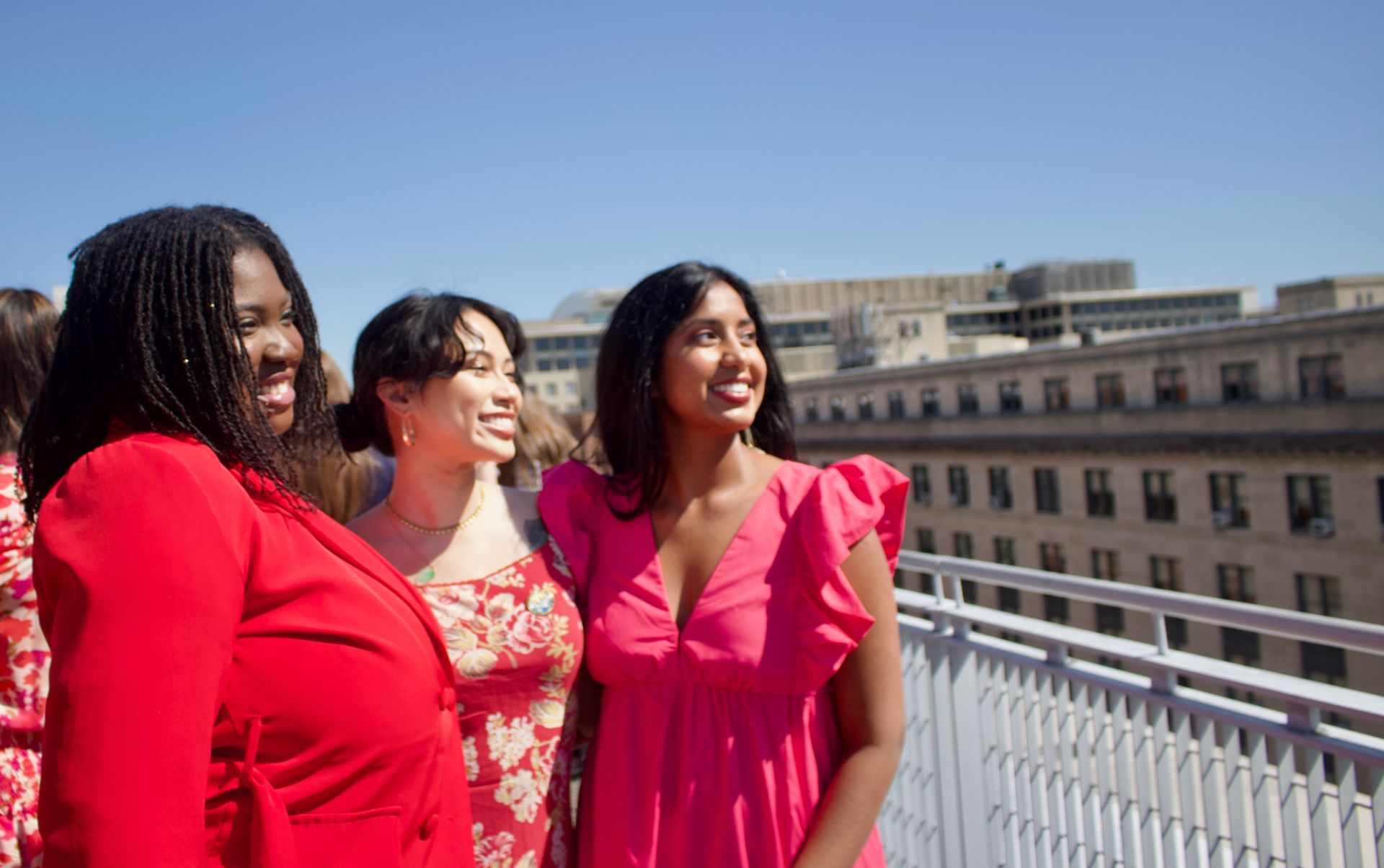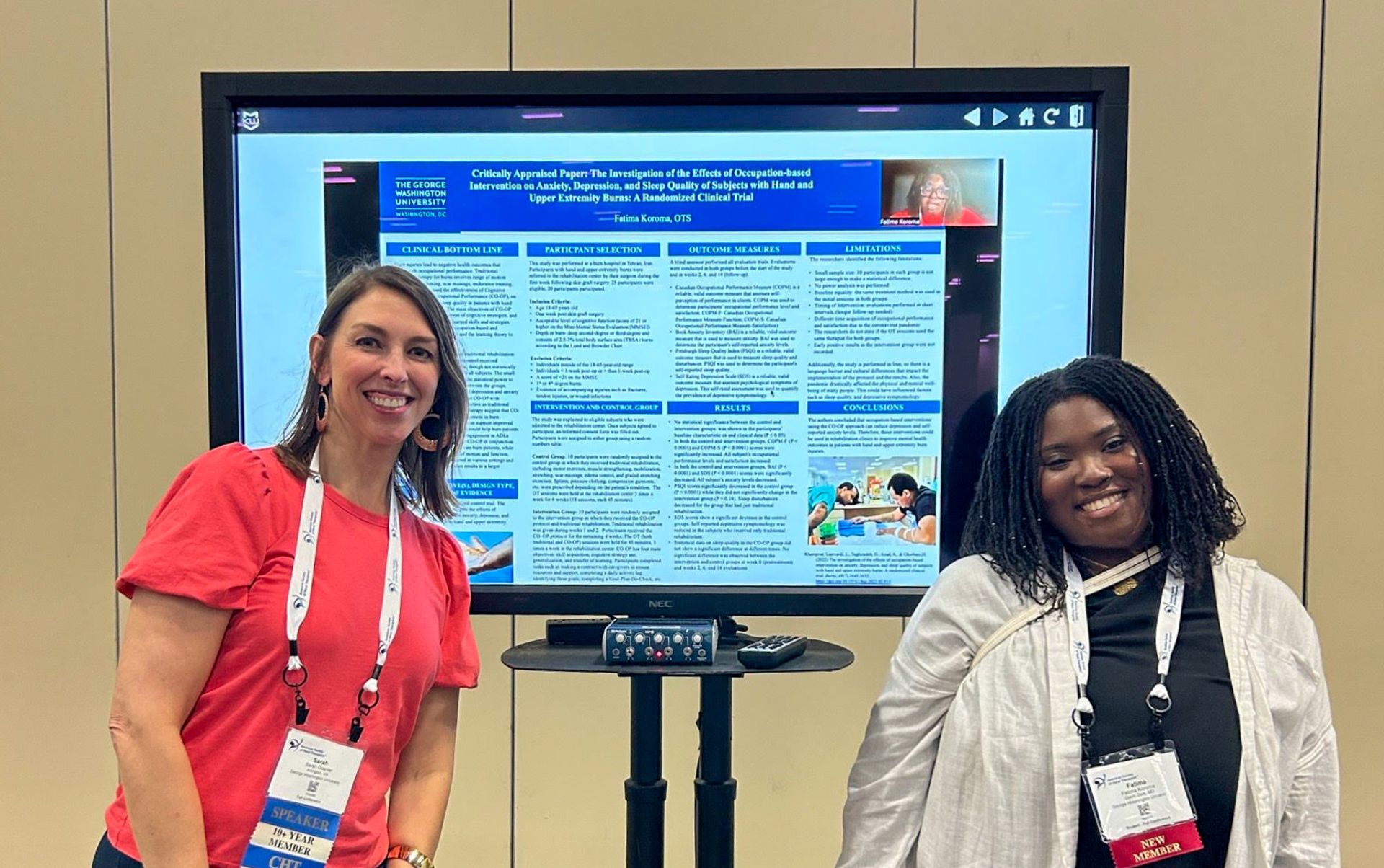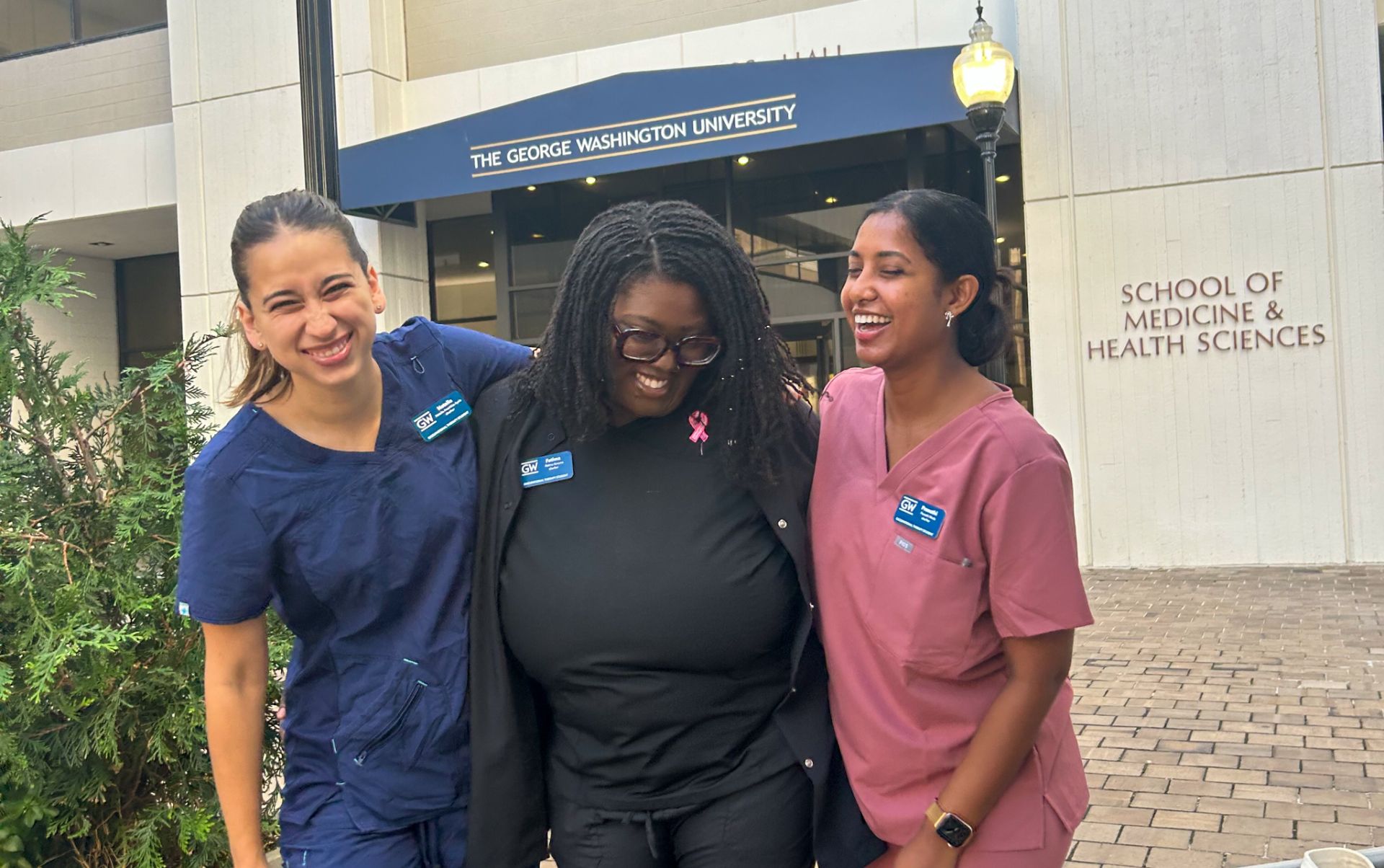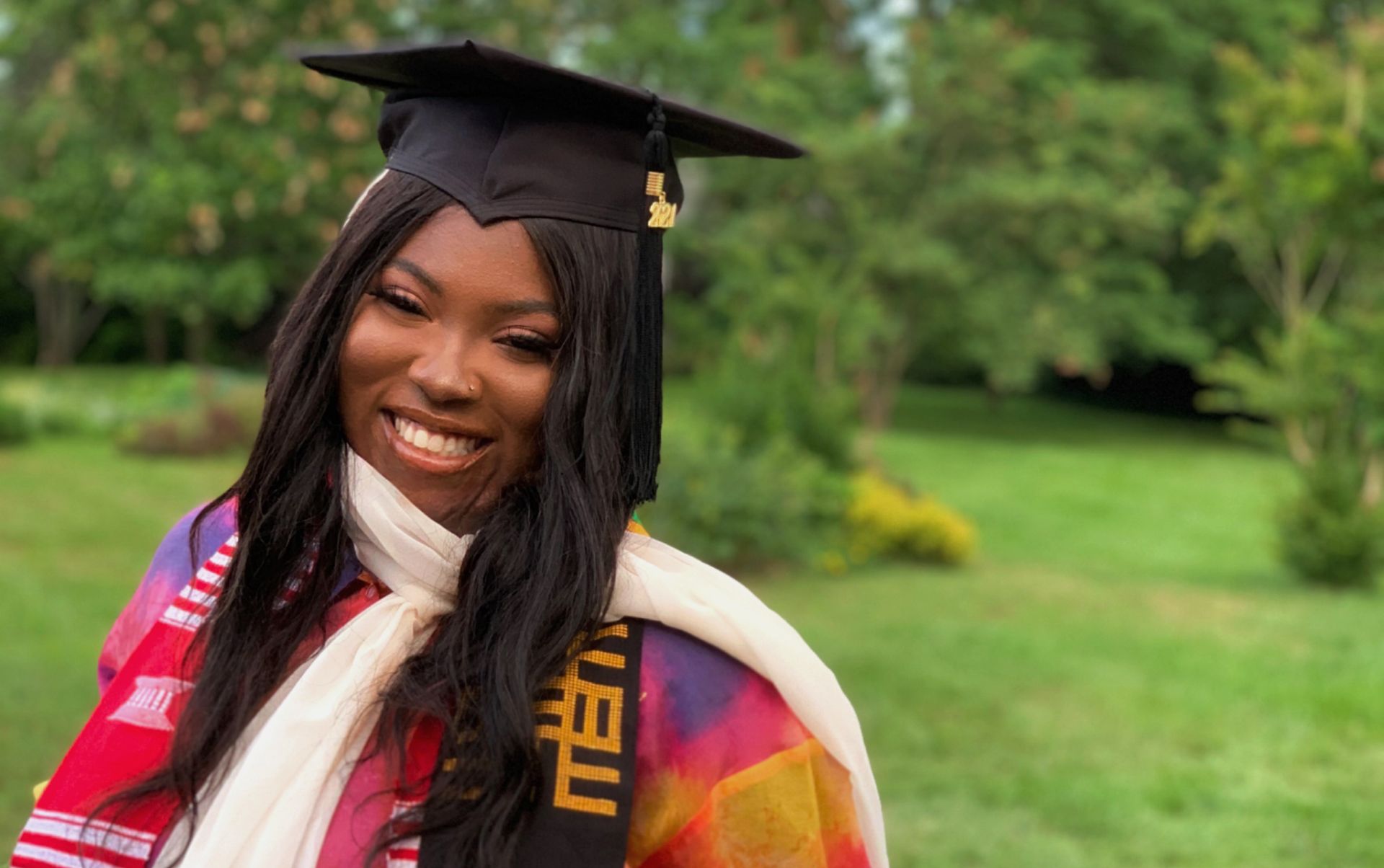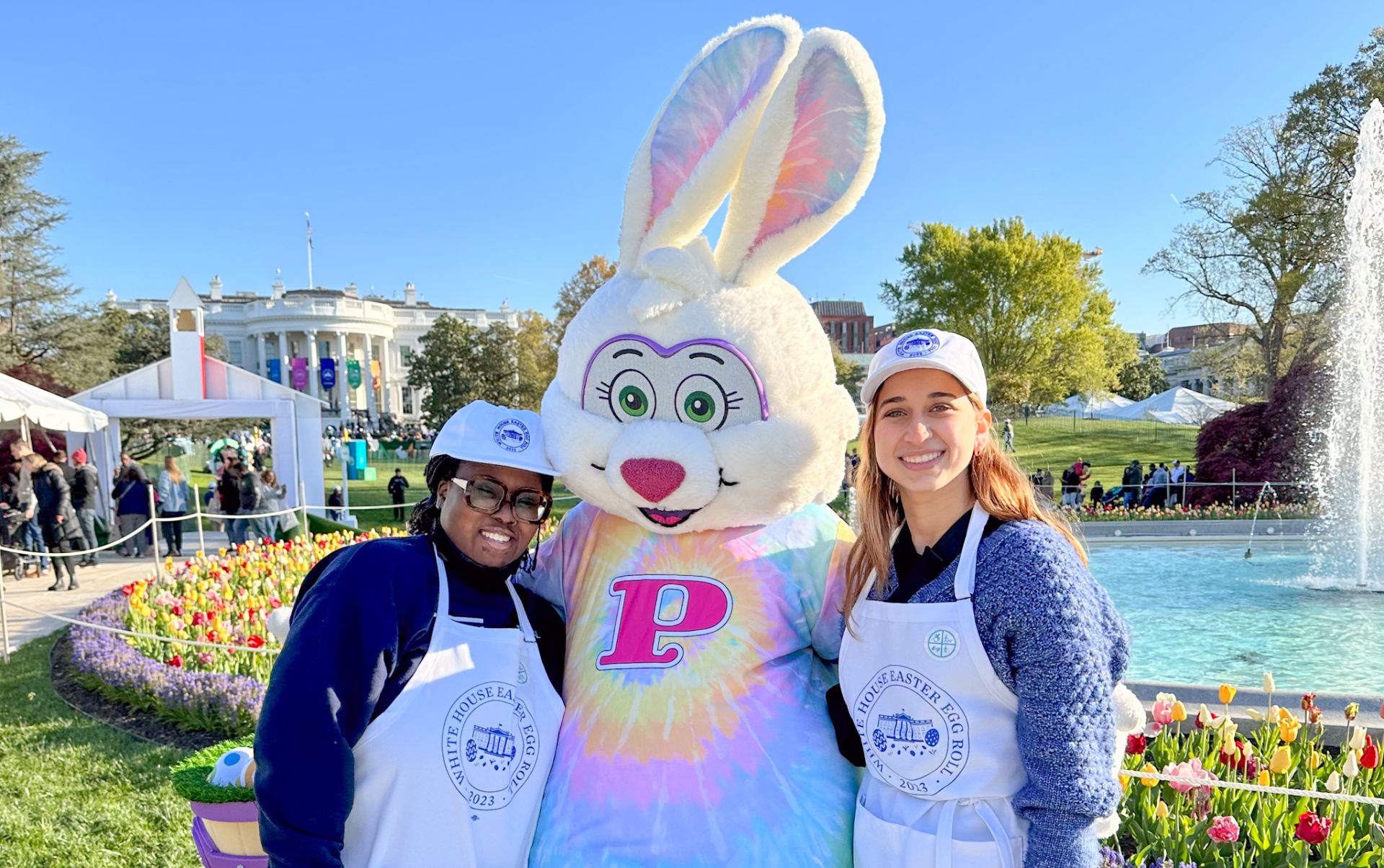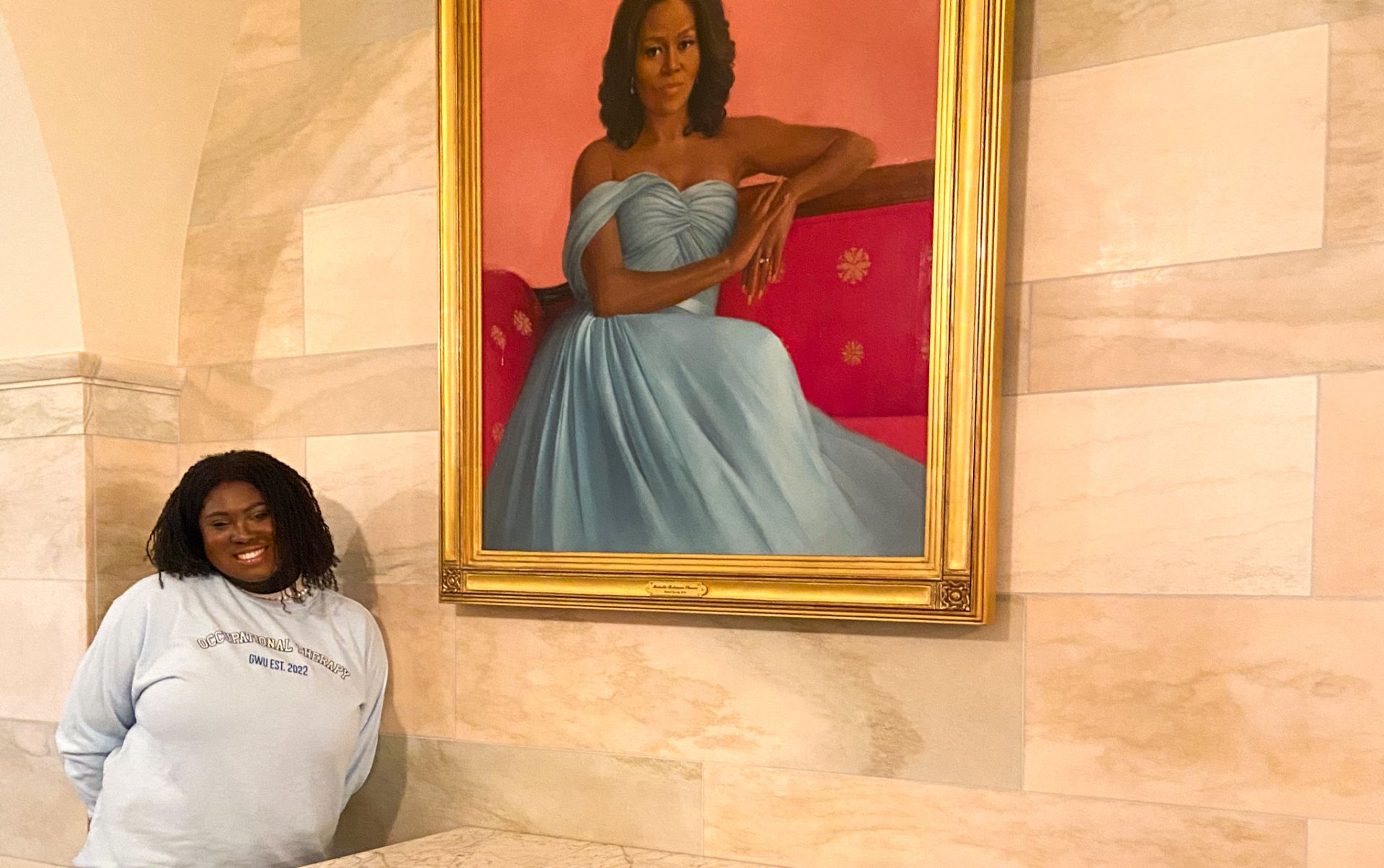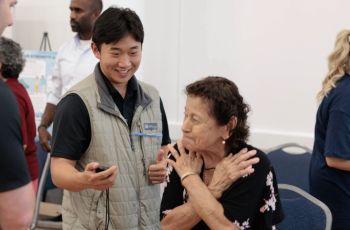The healing of occupational therapy spans far and wide across societies and cultures around the globe. It may look different from place to place, day to day, and even moment to moment. The true indication of a remarkable occupational therapist is their ability to help those in need on their path to well-being and their journey in life, no matter where it may lead.
In November of 2022, Fatima Koroma spent four weeks in the intensive care unit of MedStar Health recovering from second and third-degree burns. She spent an additional three weeks recovering in the burn unit. At this time, Koroma was in the final year of her undergraduate program at the University of Maryland, College Park, studying family science. Her focus was on maternal and child health, and law and society. A member of Koroma’s care team included Rebekah Allely, OTR/L, an occupational therapist, who changed her life and influenced her career path. Rebekah even wrote a recommendation letter on behalf of Fatima to secure her admission to the George Washington University Occupational Therapy program in the fall of 2023.
Reflecting on the individualized care that her occupational therapist provided, Koroma said, “The most important part of my treatment that a lot of people don't realize is that she would remember what I would tell her… She had an interest in my life, empowered me, encouraged me, and helped me through some of the darkest points of my life. She would say ‘I can't really understand what you're going through. But I'm proud of you. You're so strong.’ She truly was my biggest advocate.”
“She truly was my biggest advocate.”
Koroma acknowledged that the varying dimensions of her well-being were critical to improving her overall health. Her physical health, such as range of motion, were addressed – but her emotional, mental, spiritual, and social needs were also given attention. Life does not stop in the face of tragedy, and Koroma needed to heal while her primary caregiver, her mother, needed to work. When recalling Rebekah’s efforts, Koroma said, “She encouraged me to speak about my experience to improve my emotional regulation skills and invited me to multiple retreats; a burn retreat in Colorado with other burn survivors and another retreat that offered workshops for caregivers. Rebekah also asked when it was most convenient for my mom and I to visit for appointments, she really went above and beyond to accommodate me.”
Koroma experienced barriers and a lack of knowledge within the hospital system when attempting to schedule laser appointments to reduce the appearance of scarring. She found the hospital to be inflexible and unaccommodating, and their information on outcomes for people of color was limited and insufficient. “Rebekah used her resources and network to connect me with a surgeon who understood the urgency in scheduling and created a safe and supportive environment,” said Koroma. “I'm really grateful to her because without her, I wouldn't have had that opportunity, and I wouldn’t have realized that limitation doesn’t have to be a limitation.”
“Limitation doesn't have to be a limitation.”
Through her experience, Koroma hopes to influence diversity in the profession and offer compassion and empathy as a holistic healthcare provider. She understands the challenges that the black community may face in navigating healthcare and social situations, and she hopes to one day build a women’s rehabilitation clinic that specializes in burn trauma. Koroma wants to give back to people in less privileged areas, such as in Sierra Leone, Africa, where her parents are from.
“It's really important to me that I make change on a global level.”
“I was in the hospital for eight weeks, and the only black workers that I saw were staff when they were bringing me my lunches and my food,” said Koroma, as she emphasized the importance of representation. “Not being able to see myself in this field was so concerning. Just because I don't see my people doesn't mean that my people don't need these people.”
To Koroma, the GW occupational therapy program resonated with her because of its focus on diversity, advocacy, and inclusion. “I think that having faculty who all come from diverse backgrounds, all have different interests, and varying specialties is important. They really push understanding, acceptance, and diversity in the curriculum. Our faculty also do a really good job of focusing on how the person is more than just their health; they are everything else around them. The faculty understand that historically marginalized populations need to be uplifted in historically white spaces, like higher education,” said Koroma.
“This is exactly where I'm supposed to be.”
“Being in this city, in the nation's capital specifically, has allowed me to think about occupational therapy in a broader, worldwide sense. I think about how I can make change politically and systematically because of where we're located and the opportunities that we have. The resources and the access of this city specifically have opened up doors that I didn't think would ever be possible,” said Koroma.
Currently, Koroma is working as a research assistant on a qualitative research study with Trudy Mallinson, PhD, OTR/L, NZROT, FAOTA, FACRM, and Christina Papadimitriou, PhD. Their project involves designing and testing the Standardized Process Assessment of Relationship-Centered Shared Decision-Making (SPARCSdm) for the Advanced Metrics Lab. This assessment tool can be used for individuals who have altered states of consciousness and are unable to advocate for themselves, examining interactions to understand how patients are or are not included in the decision-making process. “There was a time when I couldn't advocate for myself, and I had a little whiteboard, and I was communicating with my mom in a medical setting,” said Koroma, detailing why this project holds great importance for her.
This year, Fatima Koroma presented her Critically Appraised Paper at the American Society of Hand Therapists, toured the White House for Black History Month, and volunteered at the White House Easter Egg Roll. She was awarded scholarships from the National Black Occupational Therapy Caucus and Austin Hays, with the Baltimore Orioles and Bold.org. Koroma is carrying on the mission of occupational justice by making the field of occupational therapy more inclusive and welcoming and further amplifying the ideas and values of the GW OT program.
